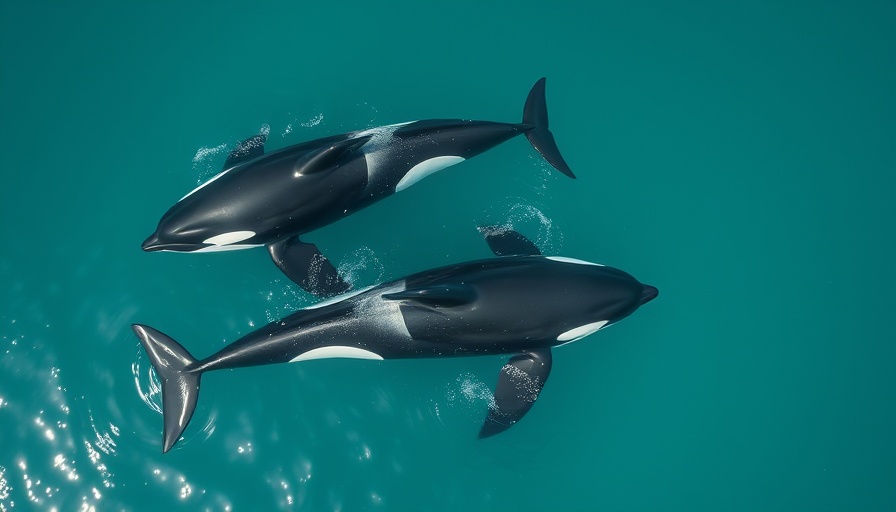
Revolutionary Discovery in Marine Mammal Behavior
In a groundbreaking study published in Current Biology, researchers have revealed that southern resident killer whales exhibit a remarkable form of tool use previously unseen among marine mammals. These whales, residing in the Salish Sea, are observed crafting and utilizing lengths of bull kelp for grooming purposes, showcasing a sophisticated social interaction that hints at a complex cultural fabric.
The Importance of Aerial Observations
Under the guidance of experts from the Center for Whale Research, the study capitalizes on drone technology to monitor the behavior of these endangered whales—now numbering fewer than 80 individuals. Michael Weiss, a key researcher, emphasized the importance of aerial footage in uncovering these subtle behavioral traits. This innovative method has enriched scientific understanding, opening new pathways for marine biology research.
What is Allokelping?
The term “allokelping” has emerged from these findings, describing the grooming behavior where whales use kelp to clean one another. The act involves the whales breaking off kelp stalks, pushing and rolling them against their companions, demonstrating a unique cooperative behavior that enhances social bonds. Such interactions are not only vital for hygiene but also play a role in the whales’ complex social dynamics.
Debunking Previous Assumptions
For decades, researchers believed that tool use was a rarity among marine animals. However, this recent discovery forces a reevaluation of that belief, suggesting that other marine species may also engage in similar behaviors yet remain unobserved. The implications are profound, potentially altering how we understand intelligence and cultural practices in marine ecosystems.
Behavioral Insights and Social Implications
The observation that killer whales prefer to groom related individuals or peers of similar age reveals further intricacies in their social structures. This grooming behavior likely serves dual functions: it promotes hygiene and reinforces social bonds within their pods. This deepens our understanding of the interactions necessary for survival in their diminishing population.
Future Trends in Marine Mammal Research
With the advent of new technological tools like drones, researchers can now gather more impactful data about marine life behaviors than ever before. As seasoned as the study of marine mammals is, this discovery points to vast unknowns yet to be explored, which may influence conservation strategies aimed at protecting these remarkable creatures.
Engagement and Conservation Efforts
Understanding the significance of these revelations calls for increased public awareness and engagement. As these endangered populations struggle for survival, knowledge of their behavioral complexities can foster a greater appreciation and urgency for conservation efforts.
It is essential not just to study these majestic creatures but to advocate for their continued existence in our oceans. Support from the public can have a transformative effect on conservation initiatives aimed at improving the conditions for the southern resident killer whales and their habitats.
What Can We Do?
One productive step towards aiding conservation is by participating in awareness campaigns or supporting organizations dedicated to oceanic preservation. Becoming informed about local marine life and their challenges can lead to effective advocacy and policy changes.
As we learn more about killer whales and their use of tools, we strengthen the case for preserving their natural habitats and ensuring their survival for generations to come. Let’s remain engaged and proactive in the fight to protect these extraordinary marine mammals.
 Add Element
Add Element  Add Row
Add Row 



Write A Comment